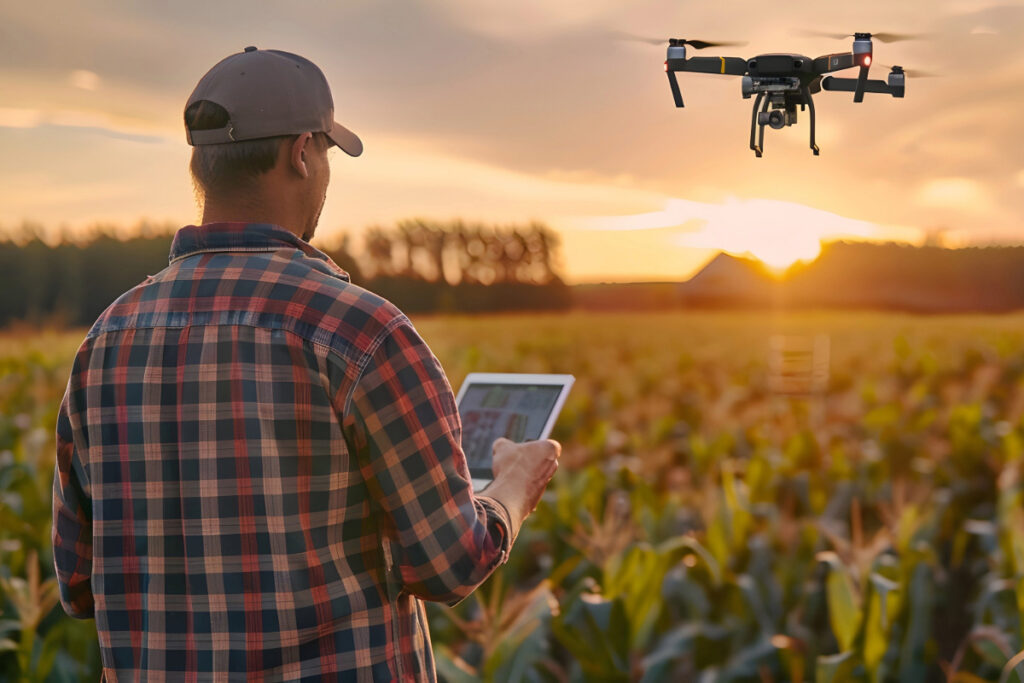In the fertile lands of Europe, a quiet revolution is taking place, moving away from traditional farming methods towards a future driven by digital innovation. This revolution, characterized by the integration of drones, data, and AI, marks the dawn of a new era in agriculture. Historically, agriculture has played a pivotal role in addressing the challenges of human survival, enhancing food production to previously unimaginable levels.
Today, we are witnessing a paradigm shift where digital technologies, including artificial intelligence (AI) and the Internet of Things (IoT), are spearheading the transition towards precision agriculture. This shift is enabling more informed decision-making processes, optimizing resource use, and leading to higher crop yield with lesser environmental impact.
Moreover, the advent of vertical farming is redefining agricultural practices, transforming urban spaces into productive food production centers. This innovative approach not only conserves space but also significantly reduces water usage and supply chain emissions.
The transformative power of these technological advancements extends beyond agriculture, reshaping our relationship with food, nature, and ourselves. It heralds a future defined by sustainability, resilience, and abundance.
Challenges Facing European Agriculture
Despite the promises of technology, European agriculture faces significant challenges, particularly in the realm of environmental sustainability. According to the IPCC Special Report, a significant portion of global greenhouse gas emissions can be traced back to food systems, including crop and livestock production, land use, and the value chain.
In response to these challenges, the European Union has launched ambitious initiatives such as the European Green Deal and the Farm to Fork strategy, aiming to reduce emissions and promote sustainable food systems. However, achieving these targets has proved contentious, leading to protests and political hesitancy in implementing certain environmental measures.
A Path Forward with Innovation and Collaboration
Despite political and economic hurdles, there is a growing acknowledgment within the farming community about the need to adopt more sustainable practices. The European Environment Agency and World Economic Forum reports highlight a collective effort among EU states to embrace measures that mitigate farming emissions and promote soil health. However, barriers such as high costs and a lack of accessible information hinder widespread adoption of these practices.
Digital technologies offer a beacon of hope, providing solutions that enhance operational efficiency, improve crop and soil quality, and reduce environmental footprint. Initiatives like Farmtopia and SmartAgriHubs are making strides towards democratizing access to digital tools for farmers, promoting a more inclusive and sustainable agricultural sector.
The road to a sustainable agricultural future is fraught with challenges but underscored by a pressing need for innovation and collaborative efforts. As technology and policy align, there’s potential not only for environmental restoration but for creating a more efficient and resilient food system for the future.


